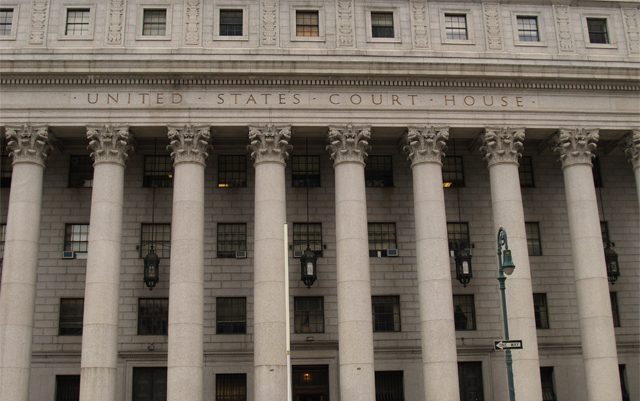It’s a defense attorney’s job to be as creative as necessary with their case in order to ideally get their client off the hook, or at least hopefully reduce the sentence they will receive. A recent federal case against two brothers who were caught trafficking marijuana across the country from California (where the brothers are from) to western New York has their defense attorney taking a route that you might not have expected – they opted to challenge the Schedule I status of the cannabis plant as being unconstitutional.
In his ruling, U.S. Magistrate Judge Jonathan Feldman noted that “there can be no dispute that public opinion on whether marijuana has legitimate medical uses is changing in this country.” But Feldman ruled that Charles and Alexander Green, two brothers accused of marijuana trafficking, had a difficult legal threshold to prove — specifically, that current federal laws are “so arbitrary and irrational as to be unconstitutional.”
Here’s the thing… marijuana was never meant to stay a Schedule I controlled substance – it was merely supposed to be a placeholder until a study could be done to properly classify the plant. This alone fits the definition of arbitrary – random and without reason, on a personal whim (Nixon’s perhaps?). In the end, the study conducted found that cannabis shouldn’t even be listed as a controlled substance, let alone be a part of the most dangerous classification of substance.
When it comes to irrational, many have already come to the conclusion that cannabis laws are extremely out of date – no one should see a year or more behind bars for simply possessing a large amount of the herb, a substance safer than so many others that are freely available in our country. For these reasons, the Schedule I status is unconstitutional – however, Judge Feldman believes that it will be a difficult legal threshold to prove, regardless of these bits of information.
Even though Feldman has already ruled against a hearing to this challenge, the Green brothers’ (yes, their actual last name is Green) attorney plans to appeal to a higher court. If their appeal goes through and they manage to convince a different judge that the Schedule I status is unconstitutional, then the charges against them would be dropped. This is a risky defense – but if it works, then it could give the DEA just a little more incentive to reschedule or deschedule cannabis and soon.






